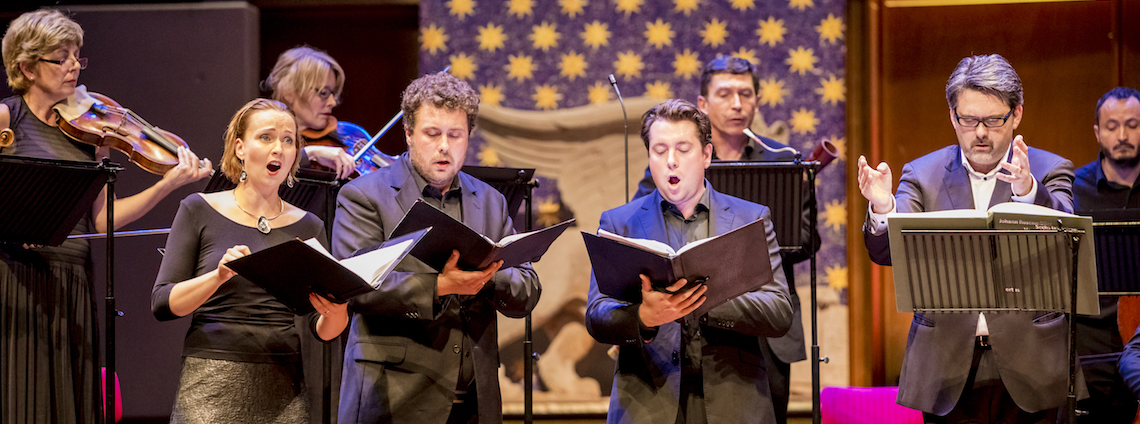Christ Church Cathedral | Map
Aleksandra Lewandowska, soprano; Jenny Högström, soprano; Robert Getchell, tenor; Thomas Hobbs, tenor; Stephan MacLeod, bass-baritone and musical direction; Christina Hutten, organ; Beiliang Zhu, cello; John Lenti, lute
A century before Bach, music in northern Germany came under the influence of a new and powerful musical language originating in Italy and perfected by Claudio Monteverdi. Obsessed with eloquence, rhetoric and the marriage of text to music, the Italian madrigal was the choice musical form of the day. Johann Hermann Schein, who held J.S. Bach’s position at the Thomas Kirche in Leipzig exactly 100 years before him, was one of three German composers (Schutz, Schein, Scheidt) who successfully adapted and converted this new form to fit the German language.
Schein’s “Israelisbrünnlein” or “The Fountains of Israel”, written in 1623, is an exquisite and moving collection of madrigals written on biblical texts from the Lutheran Bible. Though relatively unknown, it is a seminally important work in German musical history that was the foundation for the uniquely German relationship between text and music that reached its zenith with the sacred works of Johann Sebastian Bach. As in the Lagrime de St. Pietro of Lassus that EMV presented in our 2015/2016 season, secular techniques are used to communicate a sacred subject.
Gli Angeli Genève is an ensemble of soloists founded by baritone Stephan MacLeod and is based in Switzerland. They are regular guests on stages all over the world and were most recently the ensemble-in-residence at the Utrecht Early Music Festival in 2016. They record for Sony Classical.
This concert will be preceded by a free screening of concerts from the incredible website www.allofbach.com
Click here for information about parking around / transiting to Christ Church Cathedral
Programme
O Herr, ich bin dein Knecht
Freue dich des Weibes deiner Jugend
Die mit Tränen säen
Ich lasse dich nicht
Dennoch bleibe ich stets an dir
Wende dich, Herr, und sei mir gnädig
Zion spricht: Der Herr hat mich verlassen
Ich bin jung gewesen
Da Jakob vollendet hatte
Intermission
Lieblich und schöne sein ist nichts
Der Herr denket an uns
Ist nicht Ephraim mein teurer Sohn
Siehe an die Werk Gottes
Unser Leben währet siebnzig Jahr
Herr, lass meine Klage
Siehe, nach Trost war mir sehr bange
Ach Herr, ach meine schone
Was betrübst du dich, meine Seele
Lehre uns bedenken
Programme Notes
At first glance the music of tonight’s programme presents the listener with a number of puzzles. The beautifully engraved title pages of the partbooks, printed at Leipzig in 1623, immediately proclaim the title first in Italian, Fontana d’Israel, and then in German, Israelis Brünlein: “Fountains of Israel”. We are then told that the book contains “selected, powerful, passages from the Old and New Testaments,” confirming that sacred music is the order of the day. And yet, these passages are composed “in a special, graceful, Italian madrigal manner.” By this time relatively few composers were still writing “madrigals” as such—the golden age of Cipriano de Rore, Luca Marenzio, and Carlo Gesualdo was long past. Even the most splendid exception to the rule, Claudio Monteverdi, was now writing madrigals in a manner far removed from that of his early years: the “concertos” of his Seventh Book of Madrigals (1619) were now largely virtuosic vocal duets and trios over an instrumental bass, and have little to do with the classical madrigal for five voices.
The Israelis Brünlein by Johann Hermann Schein (1586–1630), then, might appear to be something of a strange hybrid: a collection of sacred madrigals, in German, for five and six voices with an optional instrumental bass. Yet it is one of the finest musical achievements of the German Baroque, a choral masterpiece entirely comparable with the achievements of his more famous contemporary Heinrich Schütz (1585–1672), a man with whom Schein was well acquainted. True to the legacy of the Renaissance madrigal, Schein pays the utmost attention to each phrase of the text, seeking the perfect musical language to bring the words to life. Especially moving, for example, is Schein’s setting of Psalm 126, Die mit Tränen säen (“May those who sow in tears reap with shouts of joy”). The weeping of the opening line unfolds in extremely chromatic, rising stepwise lines in imitation followed by cascading descents; we are startled by the sudden shift in texture at “werden mit Freuden ernten” (“reap with shouts of joy”) as the singers leap in octaves and playfully exchange quick motives, only to be cast down again into harsh dissonances (“Those who go out weeping”). As they “return with shouts of joy,” bearing their sheaves, the singers literally dance in triple time. Schein’s vivid imagination shows itself everywhere in the books: the densely chromatic opening of Da Jakob vollendet hatte; the attention-grabbing solo soprano (“Behold!”) that opens Siehe, nach Trost war mir sehr bange; the twisting and turning figures for “who can make that straight, which he hath made crooked?” in Siehe an die Werk Gottes—the invention is limitless, and close attention to the words will richly reward the listener. Like the madrigalists a generation earlier, Schein indulges in word-painting in nearly every phrase, but what is characteristically German about his approach is his insistence on syllabic writing—as a rule, one note per syllable of text—that gives his madrigals a powerful rhetorical force.
Who might have sung the madrigals of the Israelis Brünlein? Schein’s friend and contemporary Schütz (who penned a motet, Das ist je gewisslich wahr, honouring him at his premature death in 1630) did not compose in this genre, save for some early juvenalia. It is instructive here to consider the different professional responsibilities of Schütz and Schein. Schütz, a court composer his entire life, composed large amounts of church music suitable for the liturgical observances and festivals of the Saxon Electoral court in Dresden and others like it. But Schein, working as cantor of the St. Thomas church in Leipzig (a position held a century later by no less than Johann Sebastian Bach), not only was responsible for public church music in the main churches of St. Thomas and St. Nicholas, but also was surrounded by a vibrant community of bourgeois merchants and university students, whose educational attainment and musical training made them a ready audience for the Israelis Brünlein and his other collections of secular vocal and instrumental music—the German lieder of the Venus Kräntzlein (1609), the Italianate vocal trios of the Musica boscareccia (1621), the secular madrigals of the Diletti pastorali (1624), or the student drinking songs of the Studenten-Schmauss (1626). Had Schein occupied the post of Thomaskantor as long as Bach would a century later, what might he have accomplished? The madrigals of the Israelis Brünlein, fusing Italian modishness with German contrapuntal severity and Lutheran exegesis, suggests a profound and versatile talent.
Alex Fisher
Texts and Translations
Click here to view or download the texts and translations for this concert
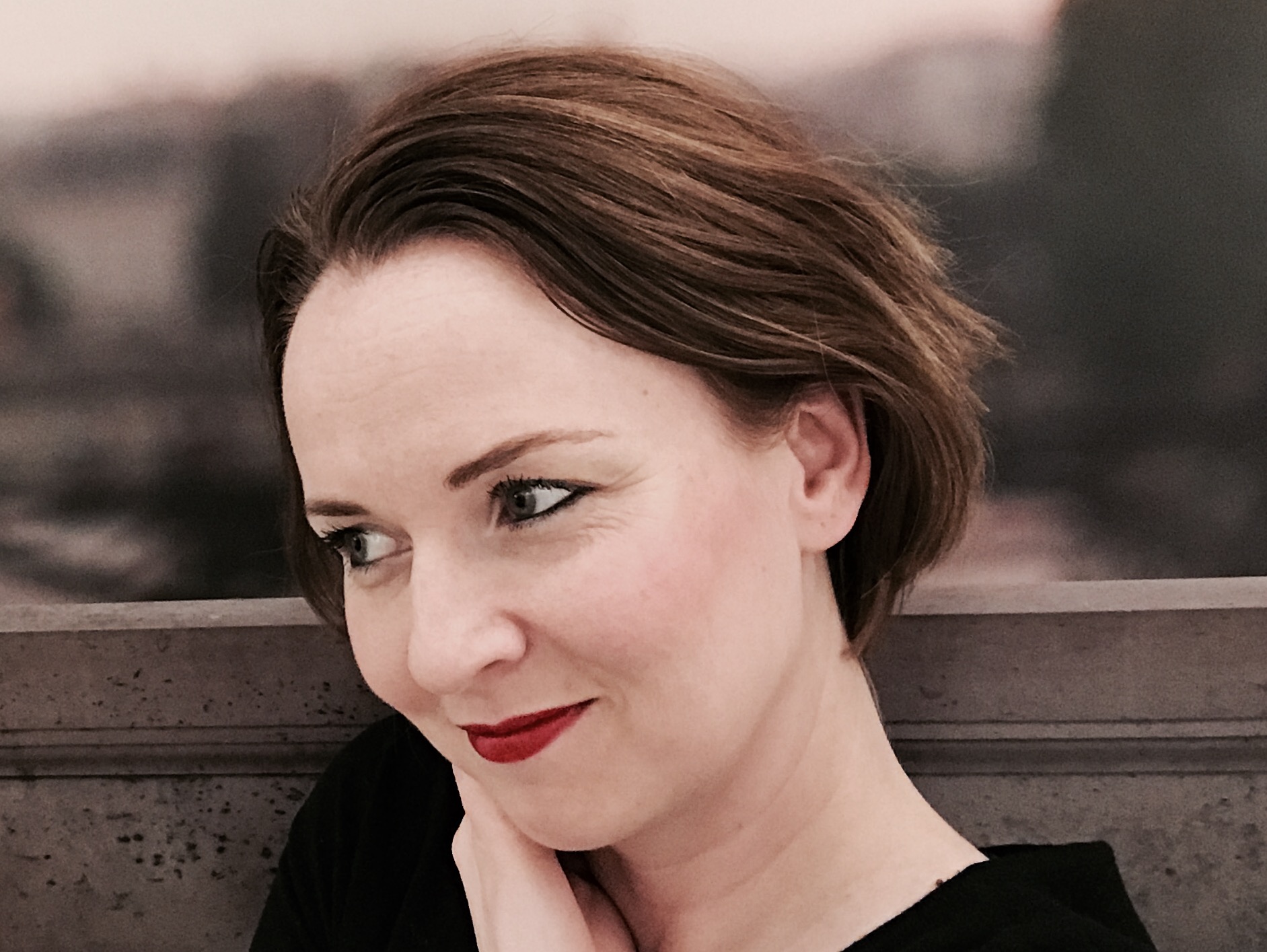
Aleksandra Lewandowska, soprano
Aleksandra began her musical road studying violin and piano. She later turned her attention to singing and eventually graduated with distinction from the Music Academy in Poznan (Poland) in the class of Wojtek Drabowicz and continued as a student of postgraduate studies at the University of Music Franz Liszt in Weimar (Germany).
She now has an established international career as a solo and ensemble singer, working regularly with leading groups and conductors such as Philippe Herreweghe (Collegium Vocale Gent), Jos van Veldhoven (Nederlands Bach Vereiniging), Stephan MacLeod (Gli Angeli Genève), John Duxbury (Cantatio), the Wroclaw Baroque Orchestra, as well as with conductors including Christophe Coin, Václav Luks, Yves Corboz, Andrew Parrott, Ivan Fischer, Giovanni Antonini, Skip Sempé, Daniel Reuss, Alexander Weimann, Christoph Spering, Peter Neumann and Michael Willens.
Aleksandra has been a guest artist at festivals including Musikfest Bremen, Bachwoche Stuttgart, Thüringer Bachwochen, Festival Oude Muziek (Utrecht), Early Music Vancouver, Festival de Saintes, Lumine Voice Festival of Lofoten, Kulturwald Festspiele Bayerischer Wald and Wratislavia Cantans.
Though mainly a specialist in earlier repertoires, Aleksandra also now performs contemporary repertoire with enthusiasm (notable collaborations include projects with the Swiss quartet, Quatuor Sine Nomine).
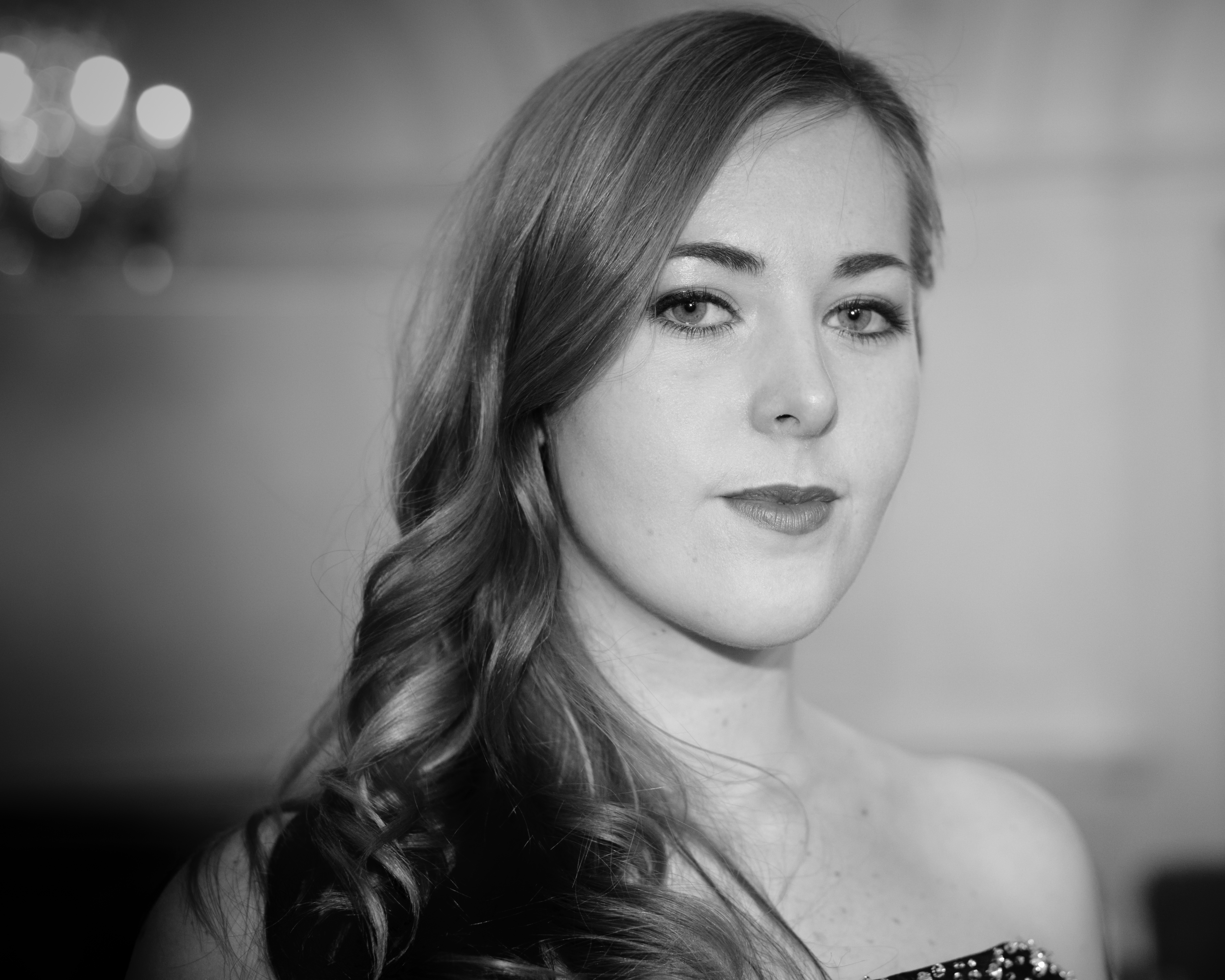
Jenny Högström, soprano
The soprano Jenny Högström was born in Luleå, Sweden. At the age of nine Jenny started learning the clarinet, and later the piano. She decided to study singing at the age of 16 for the soprano Gunilla Niska and later with Synnöve Dellquist at the Collage of Music in Piteå, Sweden, in the spring of 2012 she graduated with distinction from Schola Cantorum Basiliensis, Basel, Switzerland, with a Master of Arts in Historical Perfomance for Professor Ulrich Messthaler, and in 2014 she completed a Master in Music Pedagogy. During her studies she has undertaken Master Classes in singing and chamber music with Andreas Scholl, Margreet Honig, Alessandro de Marchi, Andrew Laurence-King, Anthony Rooley, Birgitta Svendén and Barbro Marklund among others.
As a soloist she has been invited to perform throughout Europe in prestigious festivals, such as Händelfestspiele Halle,Schwetzinger Festspiele und Berliner Tage für Alte Musik (Germany), Stockholm Early Music Festival (Sweden), Cambridge Summer Music Festival (England), Jeune Talents Paris (France) and Trigonale Festival (Austria). The main focus of her repertoire lies in the baroque, but the romantic Lied-repertoire lies very close to her heart. Jenny has worked with orchestras and soloist vocal ensembles such as La Cetra Baroque Orchestra and Vocal Ensemble, Collegium 1704, Ensemble Odyssey, Zürcher Sing-Akademie and Origen Ensemble Vocal. She had the opportunity to work with renowned conductors such as René Jacobs, Andrea Marcon, Hervé Niquet, Václav Luks and Michael Form. Together with Ensemble Odyssee, she recorded solo cantatas from the Neapolitan composer Gaetano Veneziano for Pan Classics: Christmas in Napels (2014), In Officio Defunctorum (2015).
Her performances during the season 16/17 includes tours with the Czech ensemble Collegium 1704 under the direction of Václav Luks, and with Ensemble Odyssey, conducted by Andrea Friggi. She also sang the role of Calliope in Handel’s “Il Parnasso in Festa” in Amsterdam Concertgebouw under the baton of Andrea Marcon. Jenny performs for the first time this summer at Early Music Vancouver.
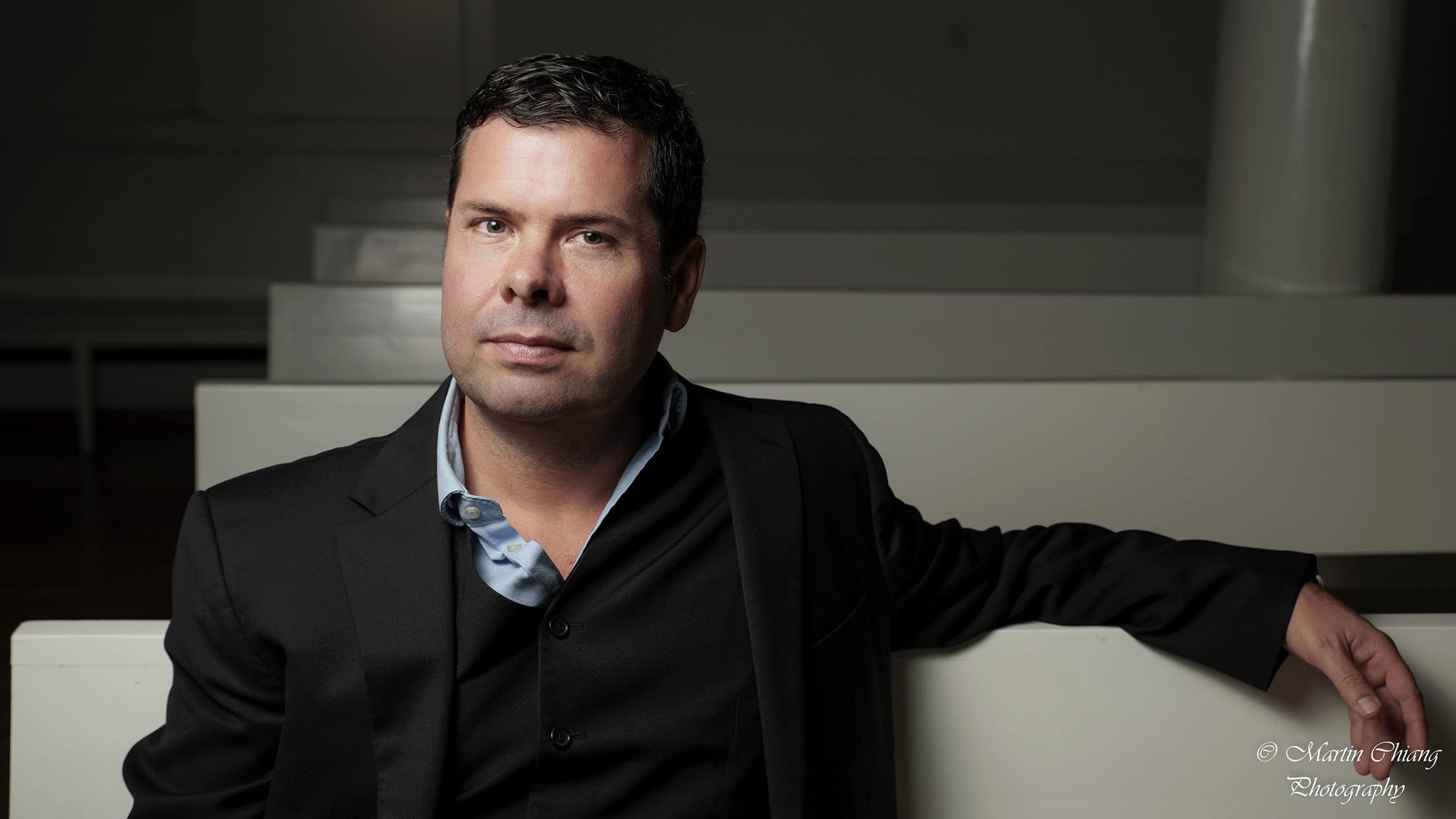
Robert Getchell, tenor
Tenor Robert Getchell began singing at the University of Massachusetts/Amherst where he studied French and Spanish literature. In France he studied French baroque music at the ‘Centre de Musique Baroque de Versailles’ and continued his studies with Margreet Honig at the Amsterdam Conservatory, specializing in early music interpretation with Howard Crook.
In Europe Robert Getchell is a frequently requested soloist, performing with many ensembles and conductors such as L’Orchestre des Champs-Elysées con. Philippe Herreweghe, Les Talens Lyriques, La Grande Ecurie et Chambre du Roy, Frans Brüggen, Amarillis, Gli Angeli Genève, Le Concert des Nations con. Jordi Savall, Akademie für Ate Muzik Berlin, and is a member of the White Raven Trio. Getchell has performed the role of La Furie in Lully’s Isis with Hugo Reyne, Astolphe in Lully’s Roland, Mercure in Lully’s Persée, The Chamberlin in Purcell’s The Fairy Queen, Eurimaco in Monteverdi’s Il ritorno d’Ulisse, and the title role in Le Claire ́s Scylla et Glaucus withChristophe Rousset. In America he regularly sings with L ́Opéra Lafayette con. Ryan Brown performing roles such as Hyppolyte in Rameau ́s Hyppolyte et Aricie, Le Chevalier in Gluck’s Armide, Polinice in Sacchini ́s Oedipe a Colone, Renaud in Lully’s Armide (the latter two recorded by Naxos). He performed the role of Gomatz and Le Podestat in Mozart Short Cuts a staged opera by Jérôme Deschamps and Macha Makeïf, con. L. Equilbey and the role of Ferrando in Mozart’s Così fan tutte at the Champs-Elysées Theater with con. Jean-Claude Malgoire. Robert Getchell has been invited to sing in various festivals in Europe such as the festivals of Versailles, Ambronay, Fribourg, Beaune and Utrecht, and he has recorded numerous CD’s with works from composers from Charpentier and Mozart to Schubert, Mendelssohn, and Poulenc. Among his projects for 2017 he will perform the role of Damon in La Double Coquette, a contemporary revision of Antoine Dauvergne’s opera comique La Coquette Trompée (1753) by Gérard Pesson, touring in France, the role of Damon in Les Indes Galantes part IV with Opéra Lafayette con. Ryan Brown, J.S. Bach’s St. John’s Passion in Victoria and Vancouver, Canada, and various concerts with J.C. Malgoire, Stephan MacLeod and François Lazarevitch.
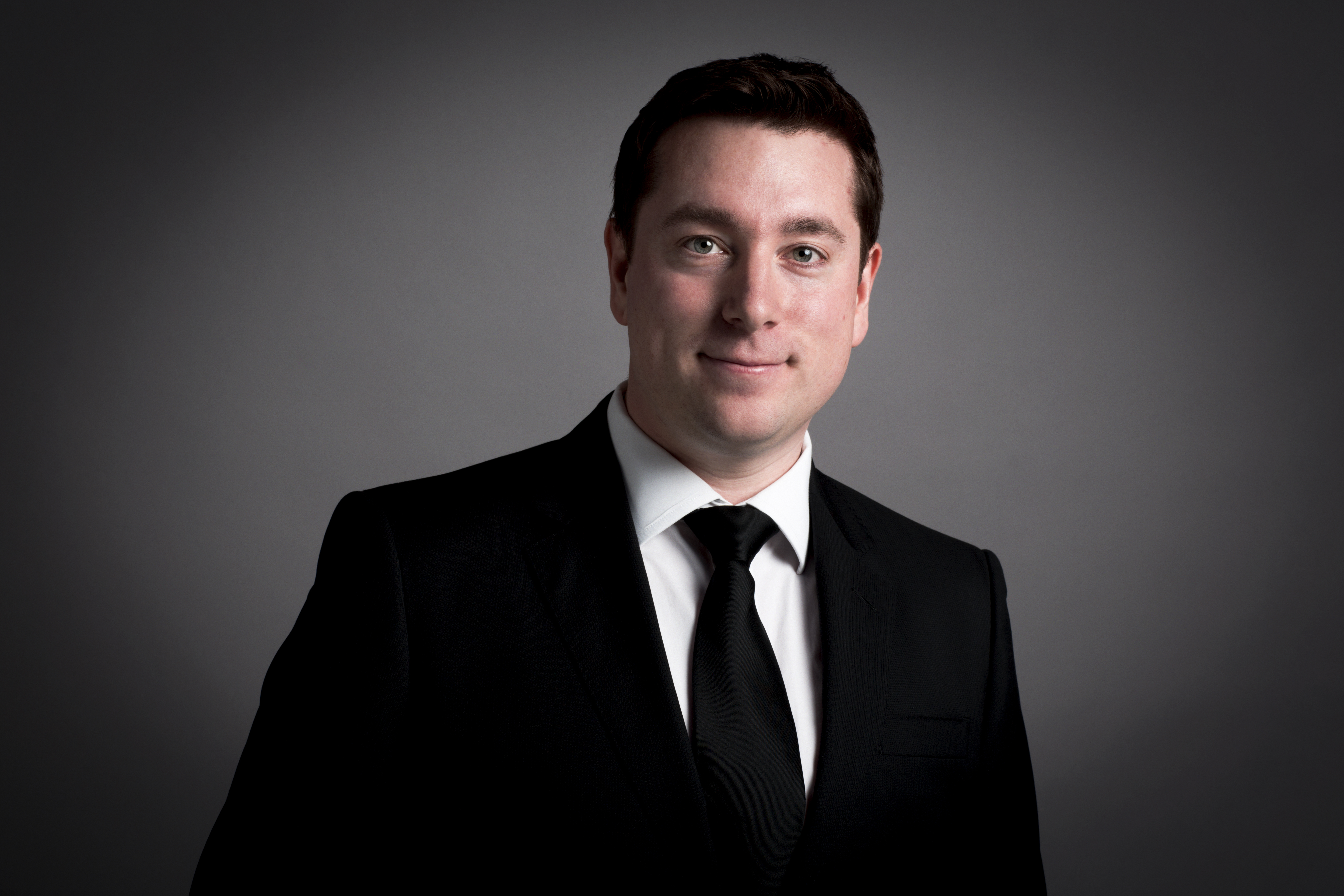
Thomas Hobbs, tenor
Thomas Hobbs is in demand with many leading baroque and early music ensembles, appearing throughout Europe and the US as a soloist in key works from the 16th, 17th and 18th centuries.
Current and future engagements include Haydn’s Creation with Israel Camerata in Jerusalem and with the London Philharmonic Orchestra, tours with Collegium Vocale Gent, and Bach cantatas, Mass in B Minor, and Easter Oratorio with the Nederlandse Bachvereniging. Hobbs will also sing Bach with the Musikpodium Stuttgart, and Monteverdi Vespers with the Academy of Ancient Music.
Recent concert performances include Damon in Acis and Galatea with Dunedin Consort, Bach cantatas with the Nederlandse Bachverenigning and Ensemble Pygmalion, Bach’s Christmas Oratorio with the Tonkünstler-Orchester Niederösterreich, Tonhalle Orchester Zürich and Le Concert Lorrain. Hobbs has also sung Evangelist in the Bach St Matthew Passion and St John Passion with the Choir of King’s College, Cambridge.
Hobbs’s operatic roles include a critically acclaimed Telemachus in The Return of Ulysses in a new production for English National Opera conducted by Jonathan Cohen, Apollo and Shepherd in Monteverdi’s Orfeo in semi-staged performances with Richard Egarr and the Academy of Ancient Music, the title role in Albert Herring and Ferrando in Così fan tutte. Also a keen recitalist, Hobbs’ recent highlights include performing Brett Dean’s Winter Songs at the Cheltenham Festival, Vaughan Williams’s On Wenlock Edge with the Edinburgh Quartet, Schubert’s Die Schöne Müllerin, Schumann’s Liederkreis, Op.39 and a recital of Mozart songs at London’s Kings Place.
Born in Exeter, Thomas Hobbs studied at the Royal College of Music under the tutelage of Neil Mackie, where he was awarded the RCM Peter Pears and Mason scholarships, and at the Royal Academy of Music under Ryland Davies, where he held a Kohn Bach Scholarship in addition to a full entrance scholarship. He was also a member of the prestigious Académie at the Aix-en-Provence Festival, where he performed in concert with Louis Langrée and the Camerata Salzburg.
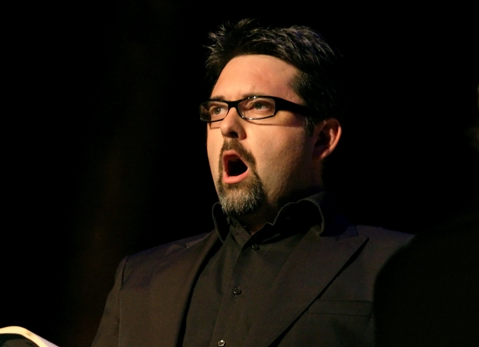
Stephan MacLeod, bass-baritone and musical direction
Born in Geneva, Stephan MacLeod first played the violin and the piano and then studied singing with Kurt Moll in Cologne and with Gary Magby in Lausanne. Active all over the world as a renowned concert singer since his early twenties, his desire to conduct led him to establish his own ensemble, Gli Angeli Genève, in 2005. The ensemble has since become one of the most respected European ensembles specializing in period performance. In recent years, he has been invited to conduct a production of Cavalli’s La Calisto in Geneva, Mozart concerts at the Lausanne Opera, a production of Sondheim’s Sweeney Todd in Geneva, Bach Motets with the Netherlands Bach Society, Bach’s Matthew Passion in Switzerland, Germany, and the Netherlands, and orchestral works by Bach and Rameau with the Orchestre de la Suisse Romande.
As a soloist, Stephan is particularly active in the oratorio repertoire, particularly under Philippe Herreweghe, Gustav Leonhardt(†), Franz Brüggen(†), Masaaki Suzuki (Bach Collegium Japan), Jordi Savall, Philippe Pierlot (Ricercar Consort), Michel Corboz, Daniel Harding, Václav Luks, Sigiswald Kuijken, Konrad Junghänel (Cantus Cölln), Christophe Coin, Helmut Rilling, Frieder Bernius, Jos Van Immerseel, Jésus López Cobos, Hervé Niquet, Paul Van Nevel (Huelgas Ensemble), and with such ensembles as the Akademie für Alte Musik Berlin, Musica Antiqua Köln, the Freiburger Barockorchester, Tafelmusik, and the RIAS-Kammerchor. In the opera world, he has sung in several productions in Brussels (La Monnaie), Venice (La Fenice), Cologne, Bilbao, Edinburgh, and Geneva.
Stephan currently holds a professorship in singing at the Haute Ecole de Musique of Lausanne and is about to embark on a new concert series with Gli Angeli featuring performances of the complete Haydn Symphonies.
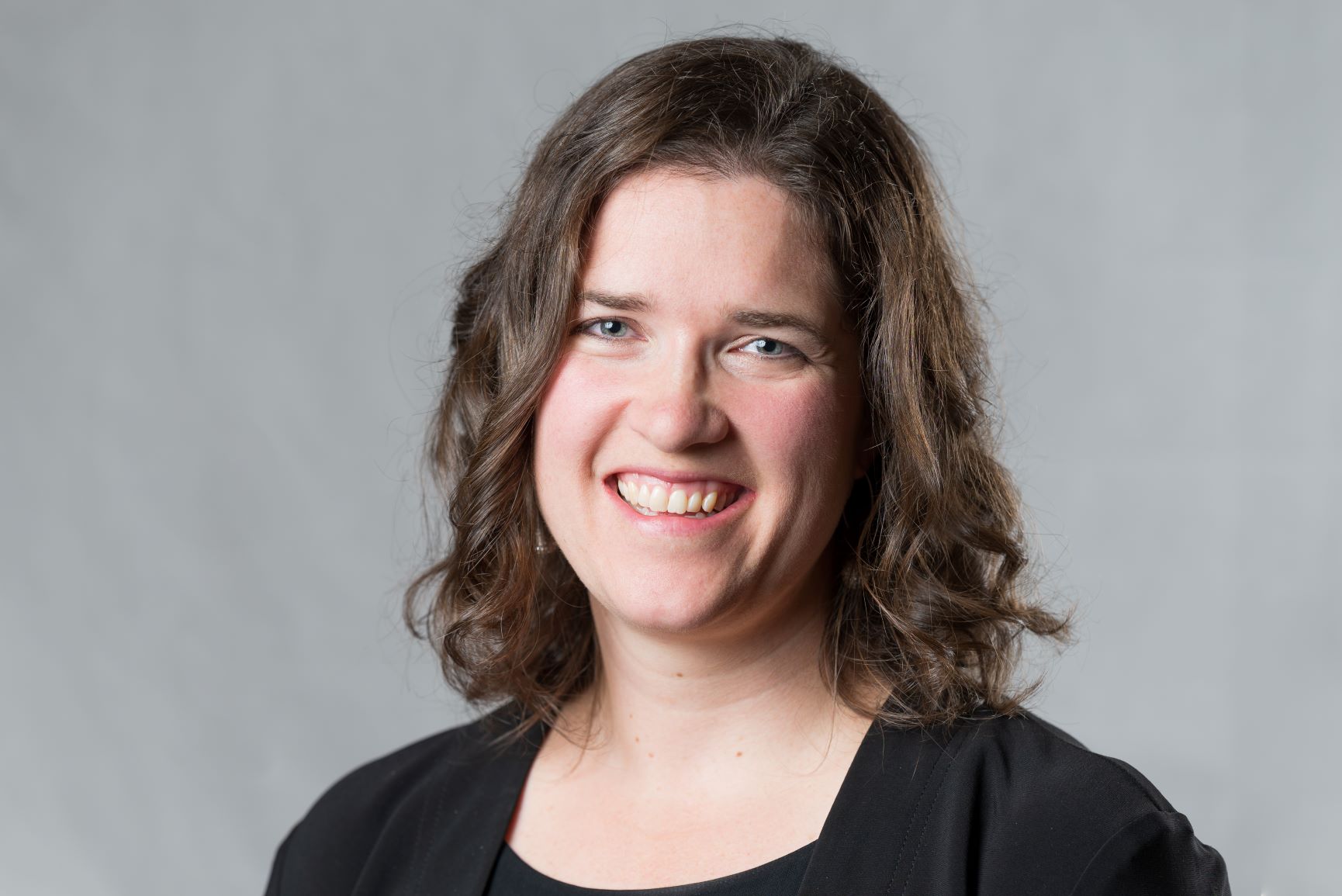
Christina Hutten, organ
Organist and harpsichordist Christina Hutten has presented recitals in Canada, the United States, and Europe. She performs regularly with Pacific Baroque Orchestra and has appeared as concerto soloist with the Okanagan Symphony, the Vancouver Academy of Music Symphony Orchestra, and the Arizona State University Chamber Orchestra. Christina is also an enthusiastic teacher. She coaches and coordinates the early music ensembles at the University of British Columbia and has given masterclasses and workshops at institutions including the Victoria Baroque Summer Program, Brandon University, the University of Manitoba, Wilfrid Laurier University, Canada’s National Music Centre in Calgary, and the Tafelmusik Baroque Summer Institute. Funded by a generous grant from the Canada Council for the Arts, she pursued historical keyboard studies in Europe with Francesco Cera, François Espinasse, and Bernard Winsemius. She participated in the Britten-Pears Programme, led by Andreas Scholl and Tamar Halperin, for which she was awarded the Loewen Prize. Christina obtained a master’s degree in Organ Performance from Arizona State University under the direction of Kimberly Marshall and an Advanced Certificate in Harpsichord Performance from the University of Toronto, where she studied with Charlotte Nediger. She is now a doctoral candidate in musicology at UBC.
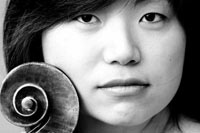
Beiliang Zhu, cello
Beiliang Zhu won the 1st prize and the Audience Award at the 2012 International Bach Competition in Leipzig (Violoncello/Baroque Violoncello). She was the first string player to receive this honor for performance on a baroque instrument. She completed her Master of Music from the Juilliard School in Historical Performance with Phoebe Carrai (Baroque cello) and Sarah Cunningham (Viola da Gamba), her Bachelor of Music and a Performer’s Certificate from the Eastman School of Music. Beiliang is currently pursuing a Doctor of Musical Arts in Violoncello, under the guidance of Steven Doane, as well as a Master of Arts in Ethnomusicology at the Eastman School of Music.
Hailed by the New York Times as “particularly exciting”, and by the New Yorker as bringing “telling nuances”, and as being “elegant and sensual, stylishly wild”, Beiliang has given solo recitals at the Bach Festival Leipzig, Boston Early Music Festival, The Vancouver Bach Festival, the Seoul Bach Festival and the Helicon Foundation. She has also performed with internationally acclaimed artists and ensembles, such as William Christie, Masaaki Suzuki, Monica Huggett, Paul O’Dette, the Boston Early Music Festival Orchestra, Juilliard Baroque, the Philadelphia Orchestra and the Trinity Wall Street Orchestra. She won a section cellist position in the Rochester Philharmonic Orchestra while still an undergraduate and continues to hold the principal cellist position of Mercury Houston.
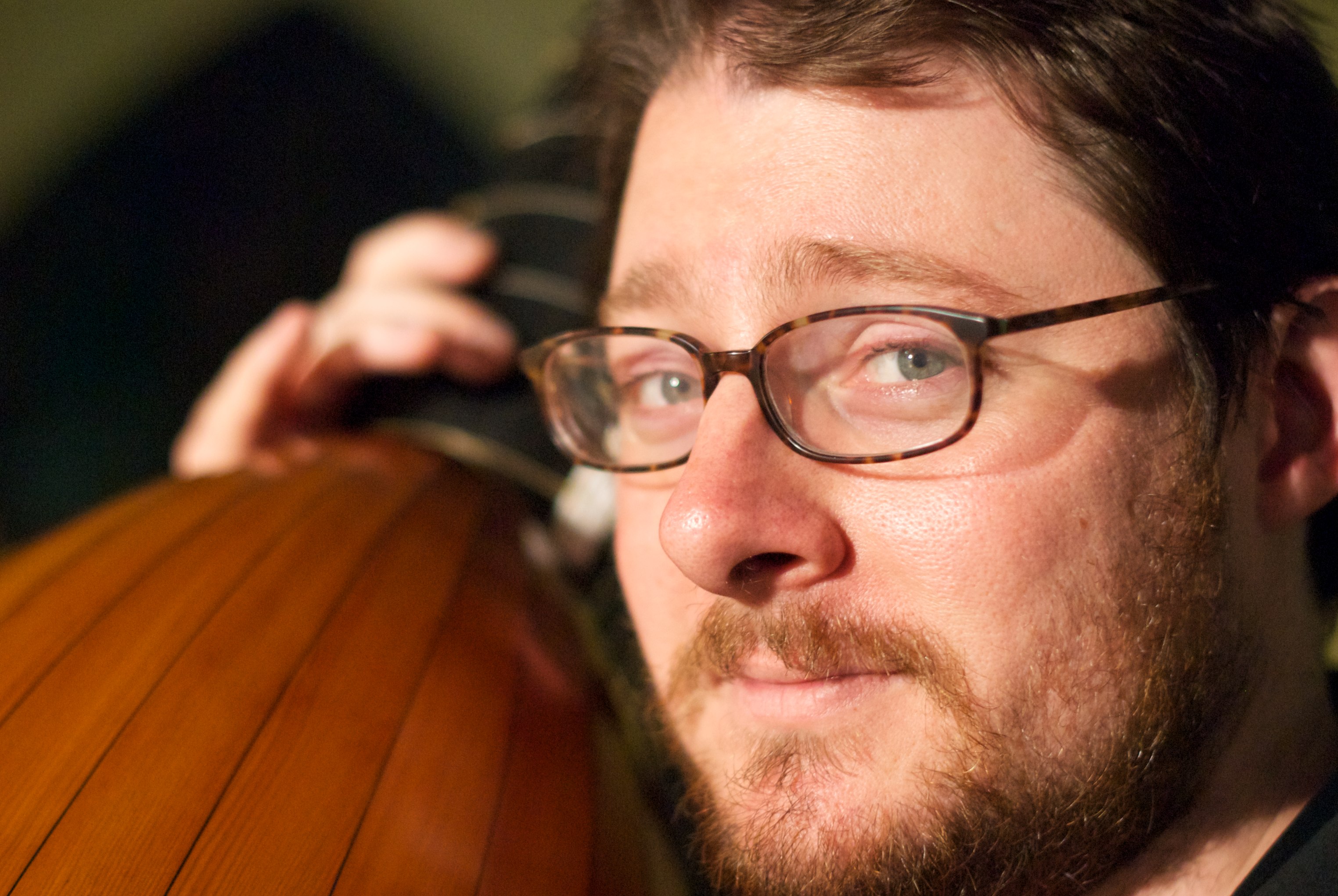
John Lenti, lute
John Lenti, whose playing on theorbo, baroque guitar, and lutes has been described as “a joy to behold” (Seattle Times) and praised for its “nuanced beauty and character” (Gramophone), regularly deploys his “uncommonly big sound” (Third Coast Digest) to considerable acclaim as a soloist and accompanist with groups like Apollo’s Fire, Haymarket Opera Company, Portland Baroque Orchestra, Opera Omnia, Seattle Baroque, the Seattle Symphony, the Los Angeles Philharmonic, and Seraphic Fire, among many others.
He tours regularly with his ensembles Wayward Sisters and Ostraka, and from his base in Seattle, he appears frequently with most groups of note on the West Coast. He can be heard on a handful of recordings on various labels with several of the aforementioned groups, and on a recent release with Dominique Labelle and Musica Pacifica. John attended the North Carolina School of the Arts and Indiana University and he studied lute with Jacob Heringman and Elizabeth Kenny, and Nigel North.

